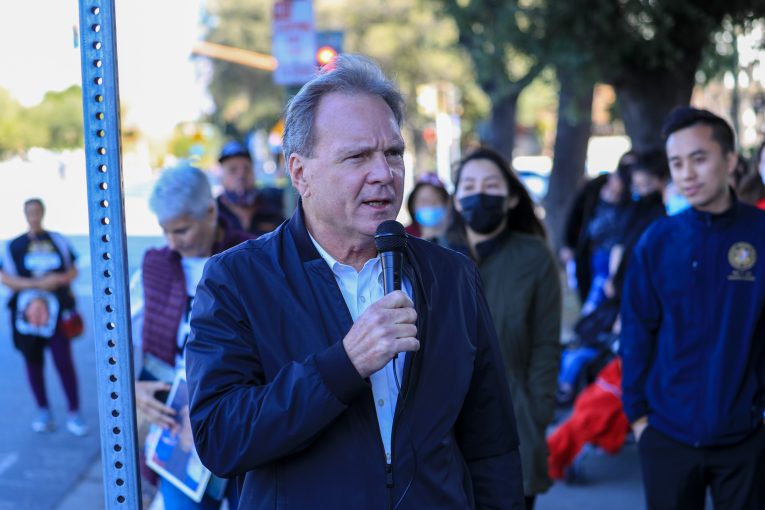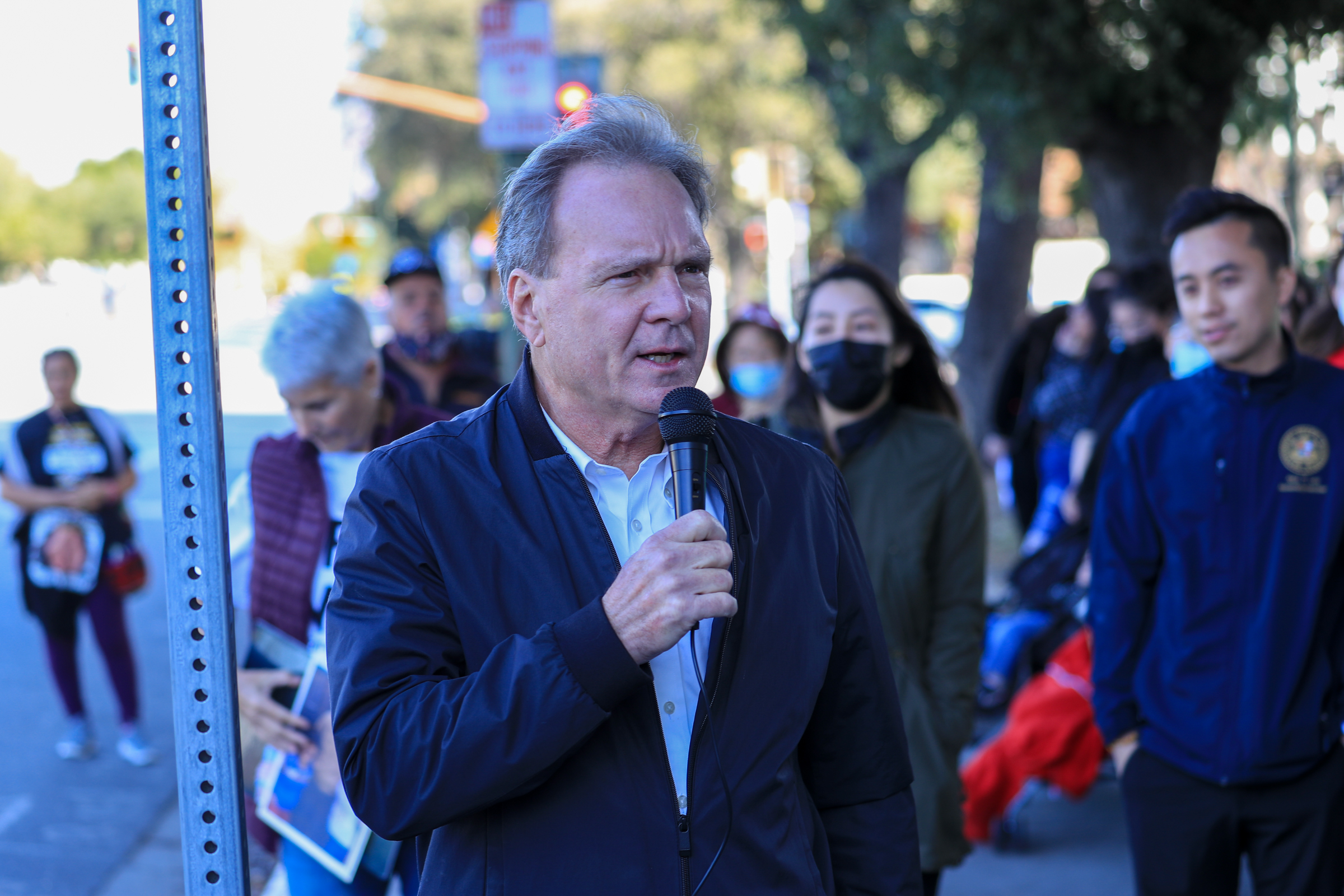

By Mathew Seibert
SILICON VALLEY, CA – A “Day of Action” was hosted Monday by FUEL (Families United to End LWOP) and the Drop LWOP coalition to support the Senate Bill 300, which addresses the “felony murder special circumstance law by allowing for a sentence other than the death penalty or life in prison without parole (LWOP) for a person who did not kill anyone.”
Senator Dave Cortese (D-Santa Clara) authored the sentencing reform act and his Deputy Chief of Staff & Press Secretary, Tara Sreekrishnan said Cortese hopes to restore judicial discretion by imposing a sentence of 25-years-to-life for individuals who otherwise would receive the death penalty.
This specifically pertains to persons who participated in an underlying felony, but did not kill anybody or intend for any persons to die, he added.
The issue of Death or Life Without Possibility of Parole (LWOP) is still alive at the State Capitol after the Bill SB 1437 reformed the first degree felony murder rule. 
“We can adopt resolutions on racial injustice, we can set up commissions and special oversight boards, but until we change the laws that are leading to mass incarceration of people of color – none of that is going to matter,” said Cortese.
Some sponsors of the Bill SB 300 include FUEL, Anti-Recidivism Coalition, the Drop LWOP Coalition, California Coalition for Women Prisoners and the Felony Murder Elimination Project.
Sreekrishnan included two unjust stories in her office’s press statement regarding SB 300.
In the first example, the lawmaker noted Tammy Cooper, sentenced to die in prison at 32 years old, faced the consequences of the corrupt justice system for the deadly actions of her abuser. She was charged as an accomplice to a murder she did not commit and was sentenced to life without the possibility of parole.
In another case, Tony Vigeant was sentenced to die in prison due to being involved in a tragic accident where a fellow Marine suffering from PTSD, shot and killed someone while retrieving Tony’s computer. Even though Tony didn’t kill or harm anyone, he was sentenced to life without the possibility of parole.
SB 300 will address injustices like what happened to Tammy and Tony, by allowing for the alternate 25-years-to-life sentence, said lawmaker Cortese.
After successfully passing through the state senate, SB 300 will be heard in the State Assembly in upcoming weeks.

The Felony Murder Elimination Project?
Seriously? What is this, the Rule 34 of social justice?
Less wise cracks, more self-education – https://www.endfmrnow.org/
Wise crack? Who in their right mind would want to eliminate murder as a felony?
“ Felony murder is a legal rule that expands the definition of murder. It applies when someone commits a certain kind of felony and someone else dies in the course of it. It doesn’t matter whether the death was intentional or accidental—the defendant is liable for it.”
Oh! Fascinating, I’d never heard that term. I thought it meant making murder a misdomeanor. I have not idea how to spell that.
Well, here’s a surprise: I would actually support that — maybe 0n a crime by crime basis — but yeah I’ve heard of people getting really stiff sentences when someone dies and someone else did the murder and it wasn’t part of the plan. As long as it doesn’t include conspiracy to commit murder and it looks like that is covered.
The classic case of felony murder is if you and another person plan to steal from a store, you are in the car, your accomplice goes in and ends up shooting the clerk. Under a felony murder rule, you would be guilty of first degree murder, even though you didn’t kill the guy, didn’t plan to kill the guy and only participated as the getaway driver. Under SB 1437, if someone dies and you aren’t the actual killer and not acting in indifference to human life, you can avoid the murder charge.
Indeed – a true “classic”.
Also, if you are in a vehicle following two of your friends who are intent upon stopping someone they believe to be a burglary suspect, and they end up shooting the guy without sufficient cause, you’ll also probably be charged with murder. And possibly a hate crime.
Even more so, if you’re videotaping it.
In your “classic” example, it seems to me that a getaway driver partnering with someone who plans to commit armed robbery fits the definition of “indifference to human life”.